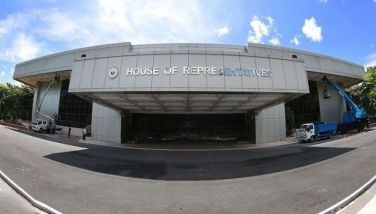US, Philippines agree on 5 base locations under EDCA
WASHINGTON – The Philippines has agreed to allow the United States to use five military bases where US troops and supplies can be stationed under a security deal agreed amid rising tensions with China’s excessive claims in the South China Sea.
At the 6th US-Philippines Bilateral Strategic Dialogue in Washington yesterday, US Deputy Assistant Secretary of Defense Amy Searight said the deal was reached under the Enhanced Defense Cooperation Agreement (EDCA).
The military facilities identified are the Antonio Bautista air base in the western island of Palawan near the South China Sea, Basa air base in Pampanga, Fort Magsaysay in Nueva Ecija, Lumbia airport in Cagayan de Oro and the Mactan-Benito Ebuen air base in Mactan.
US Ambassador to the Philippines Philip Goldberg told reporters that movements of personnel and supplies to the base locations would take place “very soon.”
The EDCA grants Washington increased military presence in its former colony through rotation of ships and planes for humanitarian and maritime security operations. It allows US soldiers, warships and planes to temporarily base in Filipino military locations.
The EDCA was signed by both countries in 2014, but implementation was held up until the Supreme Court
upheld its legality in January.
US troops were forced to withdraw from their bases in the Philippines in 1992 in a dispute over rent. With the onset of EDCA, the Philippines is shaping up as a major staging base for projecting US naval and air power in the face of China’s maritime expansion in the South China Sea.
In a joint statement released during the bilateral dialogue, the Philippines and US also reaffirmed their commitments to the Mutual Defense Treaty of 1951. Searight said that Manila was a “critical US ally” and ties had never been stronger.
Searight also announced that US Defense Secretary Ash Carter would visit the Philippines in April to discuss implementation of the agreement.
Goldberg described the agreement, valid for an initial 10 years, as “a pretty big deal” that would allow for a greater US presence as part of the US rebalance to Asia and enhance the alliance with the Philippines.
He also stressed that it did not allow for permanent US bases that existed for 94 years until 1991, when the Philippine Senate voted to evict them.
“This isn’t a return to that era. These are different reasons and for 21st century issues, including maritime security,” he explained, adding that all US deployments would require Philippine approval.
The Antonio Bautista air base in Palawan is a highly volatile area contested almost wholly by China and partially by the Philippines, Vietnam, Brunei, Malaysia and Taiwan.
The Basa base in Pampanga, on the other hand, is a major Philippine Air Force base about 16 km from the old US Clark Air base.
Fort Magsaysay in Nueva Ecija is the largest military reservation in the Philippines and primarily a training area. Its training facilities include airborne and amphibious training, jungle survival and guerrilla warfare. US forces already use a small part of the reservation to store weaponry and equipment needed for annual Balikatan exercises with the Philippine military.
Part of the Lumbia airport in Cagayan de Oro will be converted into a US storage depot for disaster relief equipment.
The Mactan-Benito Ebuen air base has a 10,000-foot runway, which it shares with the Mactan-Cebu international airport. It was constructed by the US Air Force in the mid-1950s as an emergency landing strip for Strategic Air Command bombers.
In January, the Philippines said it had offered eights bases for US use, including the former US air force base of Clark and the former US Navy base at Subic Bay, as well as two sites on Palawan island near the South China Sea.
State Department spokesman John Kirby said he was not aware of any other additional locations under discussion.
How will China react?
Asked how he thought China might react to the new agreement Kirby said, “I can’t speak for another nation and how they might react to this.”
“But I can tell you that there’s nothing offensive or provocative with respect to any of the military capabilities that are permanently based in the Asia-Pacific region or are going to be rotationally based in the Pacific region. What it signals is our commitment to our alliance with the Philippines,” he added.
‘Lion’s share’ of $50-M budget
Searight also said the Pentagon had told the US Congress of its intention to provide $50 million to help build maritime security in the region and that the Philippines would get “the lion’s share.”
The funds are expected to go towards improving radar and other monitoring capabilities in the South China Sea, where China’s pursuit of territorial claims has raised US concerns and those of rival claimants like the Philippines.
The 6th US-Philippines Bilateral Strategic Dialogue was co-chaired by Assistant Secretary of State Daniel Russel and Assistant Secretary of Defense David Shear for the US and Foreign Affairs Undersecretary Evan Garcia and National Defense Undersecretary Pio Lorenzo Batino for the Philippines.
Batino said Manila was pleased with the finalization of the locations.
Russel also expressed belief that the deal would speed US help in response to natural disasters and facilitate modernization of the Philippine armed forces.
He also noted that it came at an important time ahead of a ruling in a case the Philippines has brought against China over its South China Sea claims in the International Court of Arbitration in The Hague.
On Thursday, the US Navy said it had seen activity around a reef China seized from the Philippines nearly four years ago that could be a precursor to more Chinese land reclamation in the South China Sea.
Admiral John Richardson expressed concern that The Hague ruling, which is expected in late May, could prompt Beijing to declare an exclusion zone in what is one of the world’s busiest trade routes. – With Jaime Laude, Pia Lee-Brago
- Latest
- Trending




























